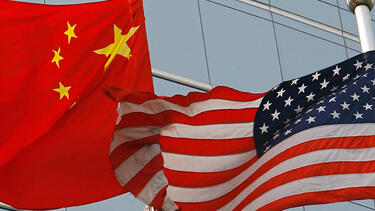Three Questions: Prof. Stephen Roach on Who Wins in the U.S.-China Trade War
In the last week, global stock markets have soared and sunk with each new plot twist in the trade negotiations between the U.S. and China. Clearly, the world is watching—and the stakes are high. Yale’s Stephen Roach argues that the two countries are actually in a “codependent” relationship—meaning each needs the other to offset imbalances in their system. And since the U.S. and China are the world’s largest economies, the whole global system needs for them to have a healthy relationship.

How important is it to the world economy for China and the U.S. to reach an agreement?
No one wins in a trade war. That is all the more important in today’s interconnected globalized world. Tariffs are taxes that ultimately fall on consumers, eroding the gains from newfound global efficiencies such as supply chains, multinational outsourcing strategies, and shared technology research and development platforms. With the world’s two largest economies, who also happen to be the two largest exporters, now engaged in a tit-for-tat tariff war, global repercussion are likely to be all the more acute.
How serious are the trade problems between the U.S. and China?
Notwithstanding all the bluster over the large U.S.-China trade imbalance ($375 billion in 2017), I think this issue is overblown. Trade imbalances are the mirror image of saving imbalances. The U.S., as the world’s largest deficit saver, had merchandise trade deficits with 102 nations in 2017. Conversely, China, as the world’s largest surplus saver, had trade surpluses with 169 countries. With its chronic shortfall of domestic saving, the U.S. needs to import surplus saving from abroad in order to grow. That leads to a balance of payments deficit, which in turn spawns massive multilateral trade deficits. There is no bilateral fix for a multilateral problem. If we close down trade with China through tariffs, the Chinese piece simply goes elsewhere—most likely to a higher-cost producer, which ends up penalizing the American consumer.
The trade imbalance isn’t really what’s dividing the two sides; it is more of a clash between two systems. In a so-called Section 301 investigation that examined U.S. allegations of unfair trading practices, China was judged to be guilty on four counts—forced technology transfer occurring in joint venture arrangements; acting as a technology predator in gobbling up U.S. tech companies through outbound M&A activity; unique sponsorship of state-subsidized industrial policies; and cyberhacking. I have analyzed these charges very carefully and have reluctantly come to the conclusion the U.S. Trade Representative, Robert Lighthizer, who headed up this investigation, has made a very weak case on all four counts. With Mr. Lighthizer now also heading the U.S. team that will be negotiating with China over the next 90 days, these issues are likely to become all the more important in resolving the dispute between these two nations.
Which country is being hurt more by the current elevated tariffs?
Washington politicians want us to believe that China is suffering the most. On the surface, there are grounds to support that contention—mainly that U.S. GDP growth has firmed up while Chinese economic growth has slowed. That, I am afraid, is a superficial way to assess the incidence of pain. In my opinion, and consistent with the basic theme of a book I wrote a few years ago, the U.S. and China are locked in a codependent economic relationship—meaning that each partner depends on the other. Yes, China depends on U.S. demand for the largest source of its all-important export sector. But the U.S. also depends heavily on China: American consumers need low-cost imports from China in order to make ends meet; the U.S. also needs surplus Chinese saving in order to fund a seemingly chronic federal government budget deficit; and the U.S. needs China as a source of growth for American exporters—China being America’s third-largest and most rapidly growing trading partner. Bottom line: in a codependent economic relationship, both parties get hurt by tariffs and other forms of disruption to their cross-border trade.